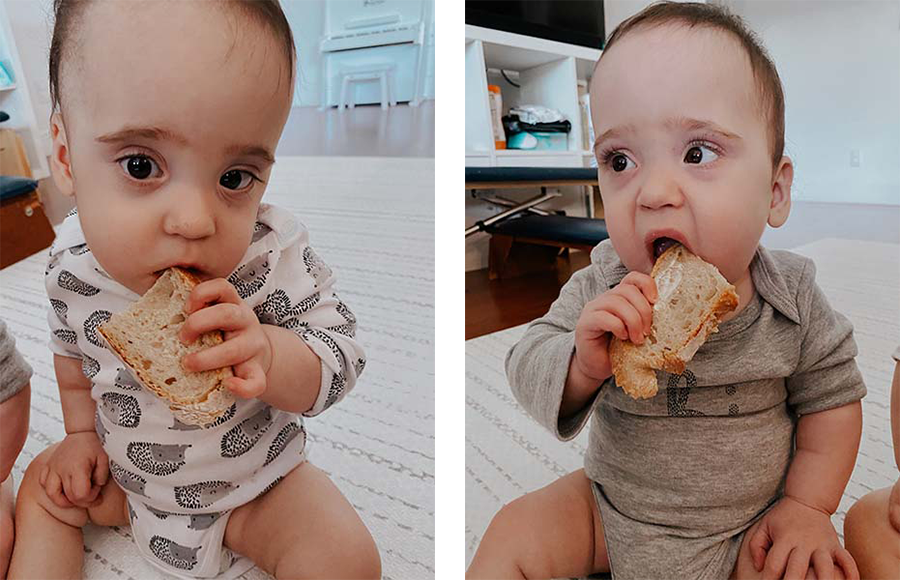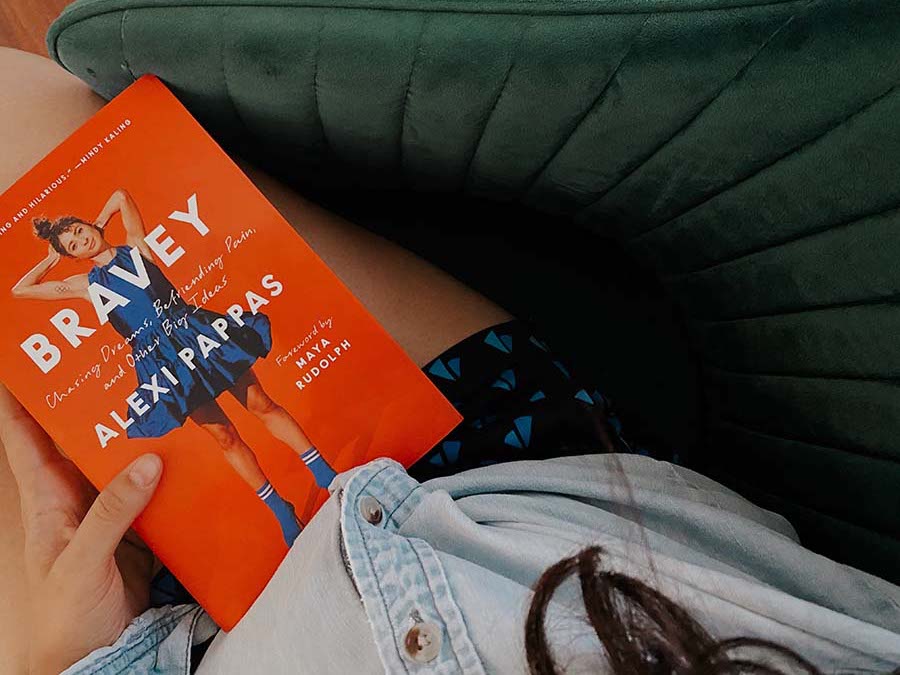Do you ever get really distracted and find yourself 20 steps removed from what you were trying to do?
My number one distraction is researching the answer to every question that occurs to me throughout the day. I will be in the middle of making dinner and wonder how to make sourdough bread from scratch. The next thing I know I’m four articles deep and mixing a sourdough starter from scratch—the vegetables I was chopping are sitting on the cutting board waiting for me to make something of them.
This tendency can deter me from the things I have to do, but I don’t beat myself up over it because I learn so much. And it’s not like I have trouble focusing, I just prefer to focus on interesting things. Chopping vegetables: not interesting. Feeding wild yeast and turning it into bread: very interesting.
This week, I started my Dear Kristen Bell series to combat writer’s block and make blogging a habit. I’ve been spending a lot of time noticing my thoughts and where I put my energy and looking for content—and when I caught myself at the dinner table reading about short gut and then later at the kitchen counter reading about sourdough, I thought maybe I should share snippets of what I’ve been learning.
On their own, the things I learn each week aren’t enough to write a blog post, but with their powers combined, it’s a little insight into what’s going on in my head—and maybe it will inspire you to go down your own Google rabbit hole and learn something new this weekend.
Short Gut
Warning: I’m going to write about poop. If you’re not into that kind of thing, you should be. It’s a huge indicator of health. Just sayin’
Second warning: this is not medical advice. I never give medical advice. Consult your doctor, not some lady with big ideas and a platform on the internet.
You may already know if you read my blog post about the gut microbiome that Margot has some digestive issues. She’s missing two feet of her intestines and is prone to diarrhea. While the digestive issues are nearly resolved, she occasionally has a poop where I am like what the heck is going on here?
Lately, she’s been having the occasional poop with whole pieces of food in it, which made me panic a little bit—how can she absorb her nutrition if she’s not digesting her food?
It’s not uncommon for infants who are newly eating solid food to have some whole food in their poop—especially an infant who didn’t put anything through her digestive tract for months and months and months.
But I still wanted to know what I could do about it if it is related to her gut issues and not just normal baby stuff.
For a while, Margot was functionally short gut, which means clinically she had enough bowel that it should have been functioning normally, but it wasn’t functioning normally. So I did a search for “short gut, undigested food in stool,” and I learned two things:
(1) We are doing all the right things by not allowing the twins to have sugar or simple carbohydrates.
(2) “The quantity and type of fiber you can tolerate depends on your intestinal anatomy and individual condition.” (Source)
The latter matters because the twins eat a lot of fiber—you might even say their diet is Fiber Fueled. According to colombiasurgery.org, eating all of this fiber is important for staying healthy and preventing disease, but insoluble fiber doesn’t break down easily—and that’s what we are seeing in her stool.
It’s ok, though. We can give her more soluble fiber, and make sure we cook her insoluble fiber better to decrease the fiber content, and we don’t need to freak out because she doesn’t have diarrhea and she’s not losing weight.
But I’m still going to talk to her gastroenterologist about it, because you should always consult with your doctor—especially about stuff you read on the internet.

Sourdough
I, like most people on the planet, love bread. We have mostly cut it out because it really doesn’t do much for nutrition. However, when Dr. Will Bulsiewicz—one of my many healthcare heroes—said that he enjoys the occasional sourdough, it piqued my interested.
Maybe there is a way for us to enjoy bread and keep all the bellies in the house happy.
Most leavened breads contain commercial yeast—the kind you buy at the grocery store in little packets. But sourdough contains wild yeast which works with lactic-acid-producing bacteria to help the dough rise. Lactic-acid-producing bacteria is the same kind of bacteria you’ll find in fermented foods like kefir and sauerkraut (which are SO good for the gut, more on this at a later date). This bacteria lowers the bread’s PH, which can reduce the phytate content of the bread.
Since phytates bind to minerals in food and reduce your ability to absorb the minerals, if you can lower phytate levels, you can increase mineral absorption.
What I’m saying is sourdough bread is more nutritious than regular bread, but it’s not because it actually contains more nutrition, it’s because it allows for better absorption of the nutrition that’s in all bread.
And the perks of sourdough don’t stop there. The lactic-acid-producing bacteria release antioxidants during the fermentation process, and the fermentation process increases folate levels in the bread.
Folate is the naturally occurring folic acid. It’s a B vitamin that helps make DNA and is important to help the body make new red blood cells.

Success
I just finished reading Alexi Pappas book Bravey. It was a super easy read—she seems surprisingly down-to-earth for a poet-film-maker-actress-and-olympian. And while the book flowed the way a conversation with someone you’re getting to know might flow, the last chapter hit me hard.
There are moments in my career when nobody would have blamed me for giving up on my olympic dream, Pappas writes.
And then she spells out the difference between herself and someone less successful: she chose commitment over interest at every crossroads.
Damn.
She writes about situations where she was only able to do what she did because she pushed past the immediate impossibility and found unconventional solutions.
And then, the real kicker…
“I don’t have enough time” is not a useful phrase when it comes to anything related to your dream. It’s ok to actively choose to do something or not, but don’t blame time. Take responsibility.
This is how one reached Ivy-league-olympic-film-making success—in case you were wondering.
*This post contains affiliate links

